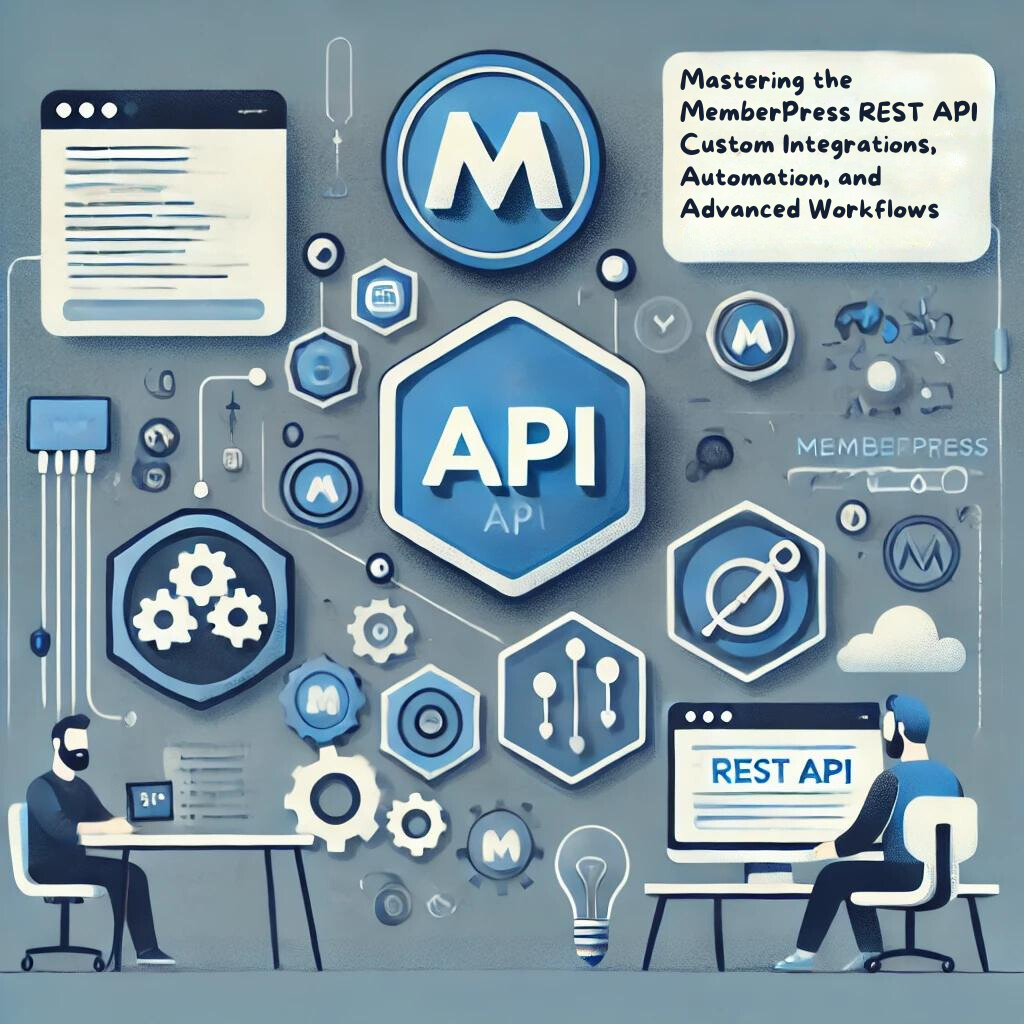🔑 Key Use Cases for MemberPress REST API
🔼 Fundamental Concepts of the MemberPress REST API
💡 Examples and Metaphors: Understanding MemberPress REST API Use Cases
📚 Expanding Your Knowledge of MemberPress REST API and Beyond
🧪 Tests and Simulations: Exploring the MemberPress REST API Hands-On
➕ Taking MemberPress REST API to the Next Stage
📚 Advanced Concepts for MemberPress API and Integrations
🧪 Tests and Simulations: Creating Custom API Endpoints, Testing OAuth Workflows, and Advanced Payment Automations
🔧 1. Creating Custom API Endpoints
Now that you’ve explored basic API interactions, let’s dive deeper into advanced API functions, custom endpoints, and more complex integrations. These advanced techniques will allow you to extend MemberPress functionality, integrate with third-party systems, and handle complex workflows with precision.
If you want to extend MemberPress and create custom API endpoints for your membership site, you can leverage WordPress hooks and the WordPress REST API to expose additional functionality. This is especially useful if you need to handle custom membership logic that isn’t covered by the default MemberPress API.
Example: Create a Custom Endpoint to Fetch Premium Content Access Stats
Let’s say you want to create a custom API endpoint that retrieves how many times premium content has been accessed by each member.
Steps:
- Create a Custom Plugin:
- To create custom API endpoints, it’s best to write the code in a custom WordPress plugin. Here’s the basic structure of a plugin:
<?php /* Plugin Name: Custom MemberPress API Description: Extending MemberPress API with custom endpoints. */ add_action('rest_api_init', function() { register_rest_route('custom_mp/v1', '/content-access-stats', array( 'methods' => 'GET', 'callback' => 'get_premium_content_stats', 'permission_callback' => '__return_true', // Set permission rules here )); }); function get_premium_content_stats() { // Custom logic to retrieve content access data from the database $content_stats = array(); // Assume this holds your data return new WP_REST_Response($content_stats, 200); }- This code registers a new custom API route under
/wp-json/custom_mp/v1/content-access-stats.
- Call Your Custom API:
- You can now call this custom endpoint from Postman, cURL, or any third-party application:
GET https://your-site.com/wp-json/custom_mp/v1/content-access-stats
- You can now call this custom endpoint from Postman, cURL, or any third-party application:
